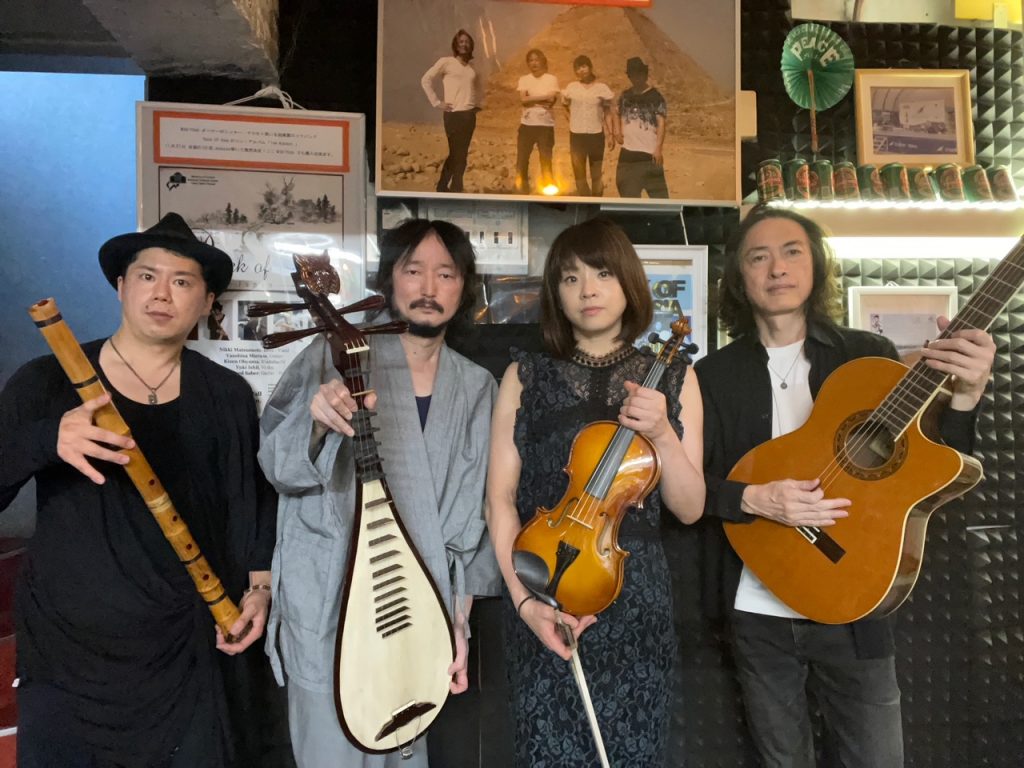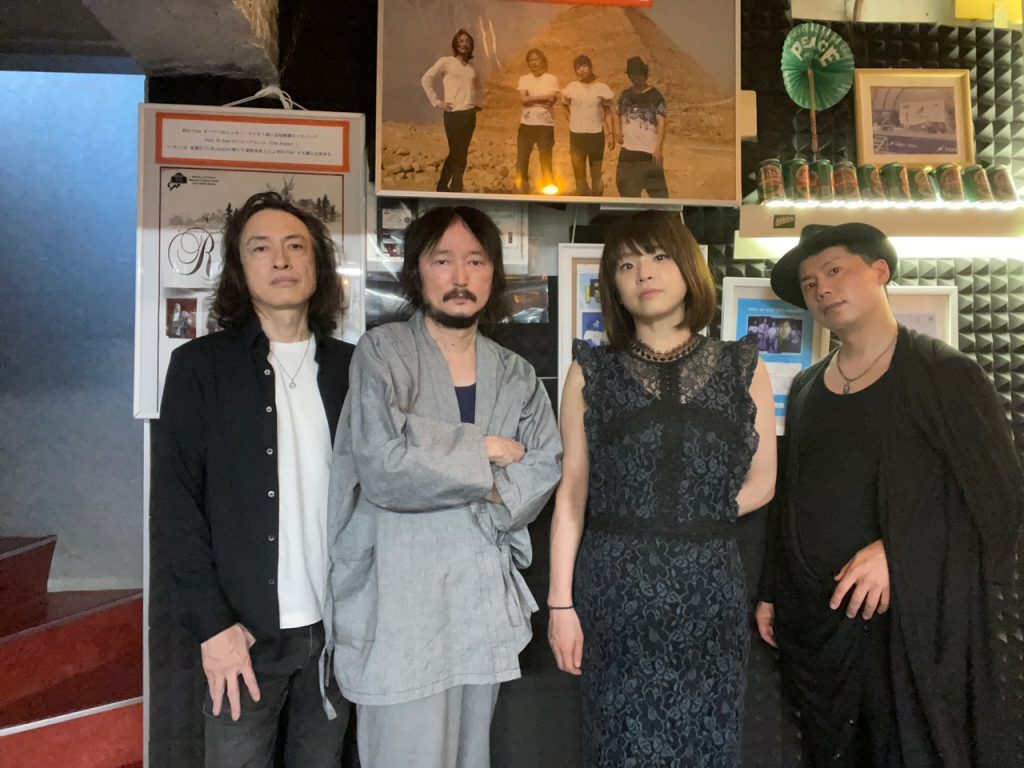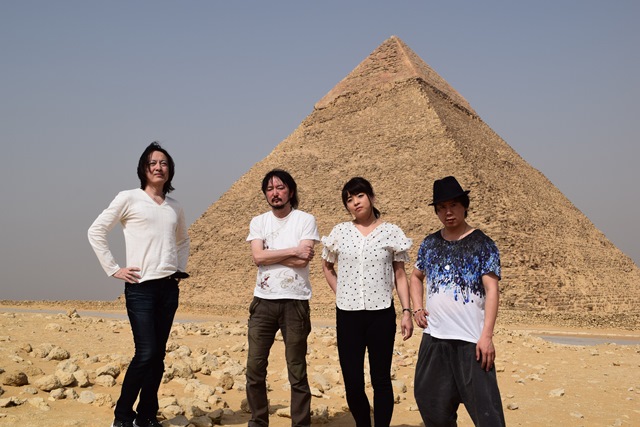Loving World Music.
For all our readers who love world music and enjoy finding new music, we have the pleasure of presenting Nikki Matsumoto and his Rock of Asia project. Nikki, evading Japan as a teenager with no English language ability whatsoever, spent 15 years of his youth living in the Los Angeles area, struggling to make a living, playing music, and trying to fit in. The Asian Anthology album (link here) has received high levels of critical acclaim and shows the diversity of the musicians, with the violin and the traditional biwa instrument prominent in the blend.
In the magazine with the album getting a play, a track called “The Parallel” was well liked. The instrumentation is lovely, the song is about two sides, two separate. But at the end of the song, there is a long solo part played by Shamisen and violin. The one presents the East and the other, the West. It shows that the two sides can exist in harmony.
The songs change in themes. There is one dedicated to John Lennon, others relate to the environment. The lyrics are environment-conscious and there is a lot to enjoy throughout. This magazine likes to show you new listening pleasures, Rock of Asia is one of them, and we are happy to support them.

So Rock of Asia, which sounds like a band, is the individual Nikki Matsumoto and his friends that he employs around him to get his music effectively out there.
Nikki- I write the lyrics, I write the music, I sing. Yes, it is me. That is not to say we don’t do cover versions. The song “Kojo No Tsuki” is a cover song. So I did not write all the songs because we do have some covers. And my guitarist, Yasu Murase worked on the arrangement for this particular song. I do write and arrange the majority of the material, but there is an exception, and Kojo No Tsuki is that! But otherwise, I play the keyboard a bit and write all the parts with my keyboard and get the music to my musicians. The project is my ballgame. I’m the manager, and I tell the players what to do! But the Rock of Asia has an identity. It sounds right.
We touched on the Japanese music scene, which has always embraced western music in recent years, with The Beatles, Queen, and Kiss having strong followings (Kiss had a number 1 in Japan after collaborating with Momoiro Clover Z). I asked Nikki how he felt he slotted into the Japanese scene.
Nikki- Perhaps you should be glad you don’t know too much about the Japanese music scene!! To explain, I grew up in the seventies listening to pop, both American and Japanese. But when I got to the age of maybe 14, I realised the Japanese bands were copying the West, same drum beats and guitar sounds, but it was basically copied, and I saw that we were behind. But now, post-Beatles and Queen, Japanese bands were imitating, but we have now moved to copying American Rap, and does it fit? I’m not sure it does. I think linguistically, the English language helped to create a rock groove, and to imitate singing in Japanese, I’m not sure it works. But the Japanese still listen to metal. Have you come across BABYMETAL? Now BABYMETAL is like an experimental project in heavy metal, and they are kind of girl dancers and girl singers fronting a metal band. When I first saw it, I thought it was a joke, but they are doing really well and they are popular. My problem is when you blend a pop idol thing with metal. Culturally, it does not represent our culture. Our strength should be in our culture, something we have forged for decades, maybe hundreds of years. Culture is very important to me. I lived in the US for 15 years. People wanted to talk to me and ask about Japanese culture. We had this quiet and polite culture, but then we had the Shogun war-style culture too, a mix of quiet and violence. I wanted to know who I was, and who we were too. That took me to Japanese instruments.

We spoke next about the instruments used by Rock of Asia. The instrumentation is traditional, and Nikki plays a lute-like instrument called a biwa.
Nikki- The biwa is the Japanese version, and it does look like a lute. They started from the Middle East, I’m not sure, but before Christ in Babylon they had the barbat, which was the origin of the lute. Looking back at Arabic history, all the stringed instruments came from the Persian/Babylon background. I believe it morphed into the oud, which is Moroccan. You can see the oud played in the street over there; street musicians play it and carry it around. It is the same as the guitar in the west, very popular. Then the biwa came via India, and they have the biwa in China too, but the pronunciation is different. My instrument is not like a guitar, the shape is like a lute, but the frets are not.
We next talked about the video for a song called “Lal Dhaga” (the link to this video comes at the end of this piece). In Hindi, this means red string, and the story is based on “The Spider’s Thread’ written by Ryunosuke Akutagawa, a story of Buddha trying to save an inmate of hell.
Nikki- That was a Sri Lankan festival. We were actually headlining an Indian festival in Tokyo. We were asked to write something about India, and that is really where that number came from. I spoke to my Indian friends and infused some Hindi into the lyrics. It’s a great story. This criminal is pulled from hell by the string lowered by Buddha, a spider’s thread, as he knew this man had done many good things. As he climbs, a number of other criminals also grab the thread and begin to climb, but the man starts to kick them off and not allow them, Buddha sees this and effectively cuts the string and condemns him. This is a story I remember as a child, and it inspired me to write the song.
Musically, I spoke about how the music from Rock of Asia is very calming, meditative, and soulful. The love of the environment also came through very clearly.
Nikki- I also call myself a peace activist. I care about the major issues and I try to express my feelings and opinions in my music. I am lucky as I can express feelings through my music.
We feel that there is so much to explore musically out there and too often we remain stuck with the same. It is great to be able to reach out and suggest some new listening pleasures. Have a try, you won’t regret it!
Mark C Chambers.
& Benny (The Ball) Benson.



